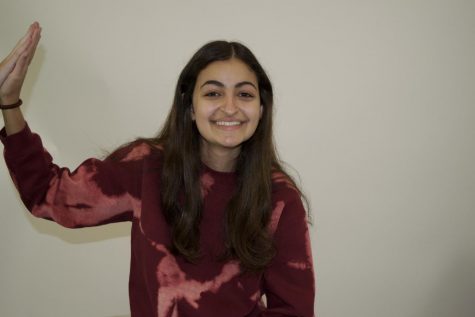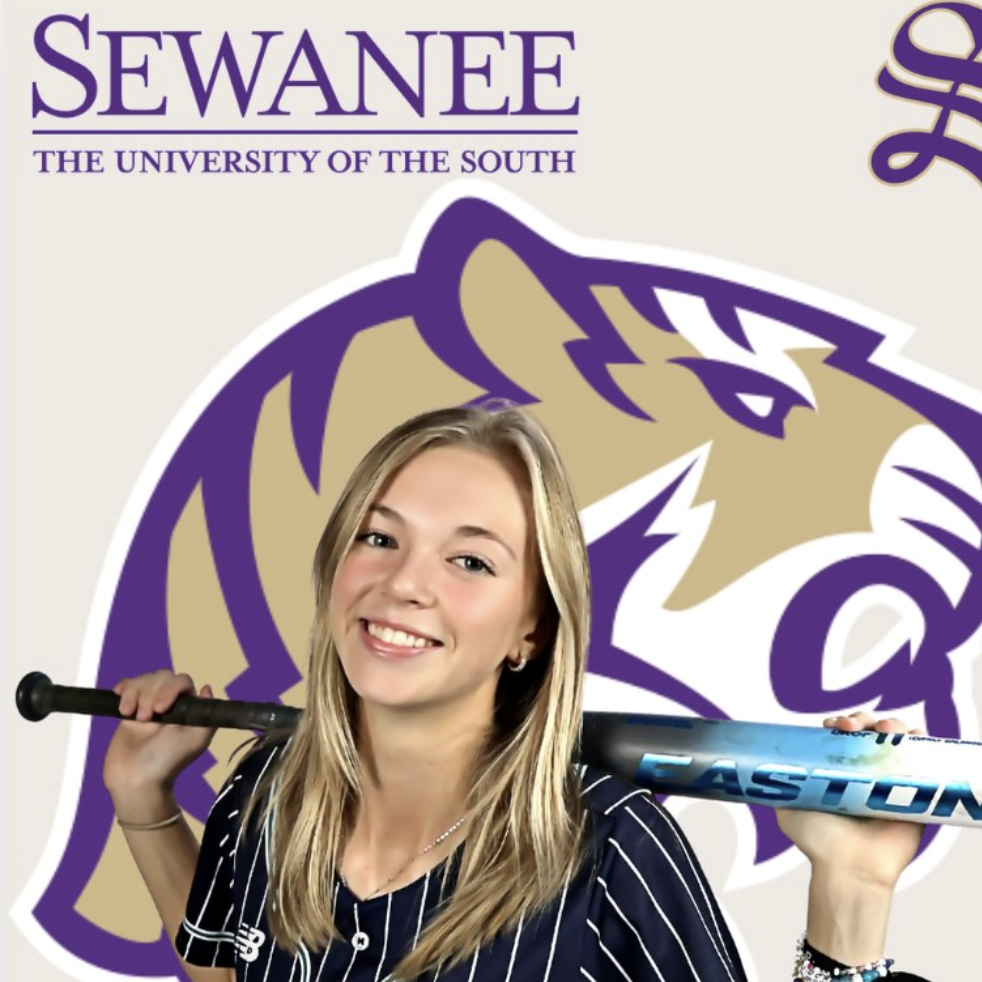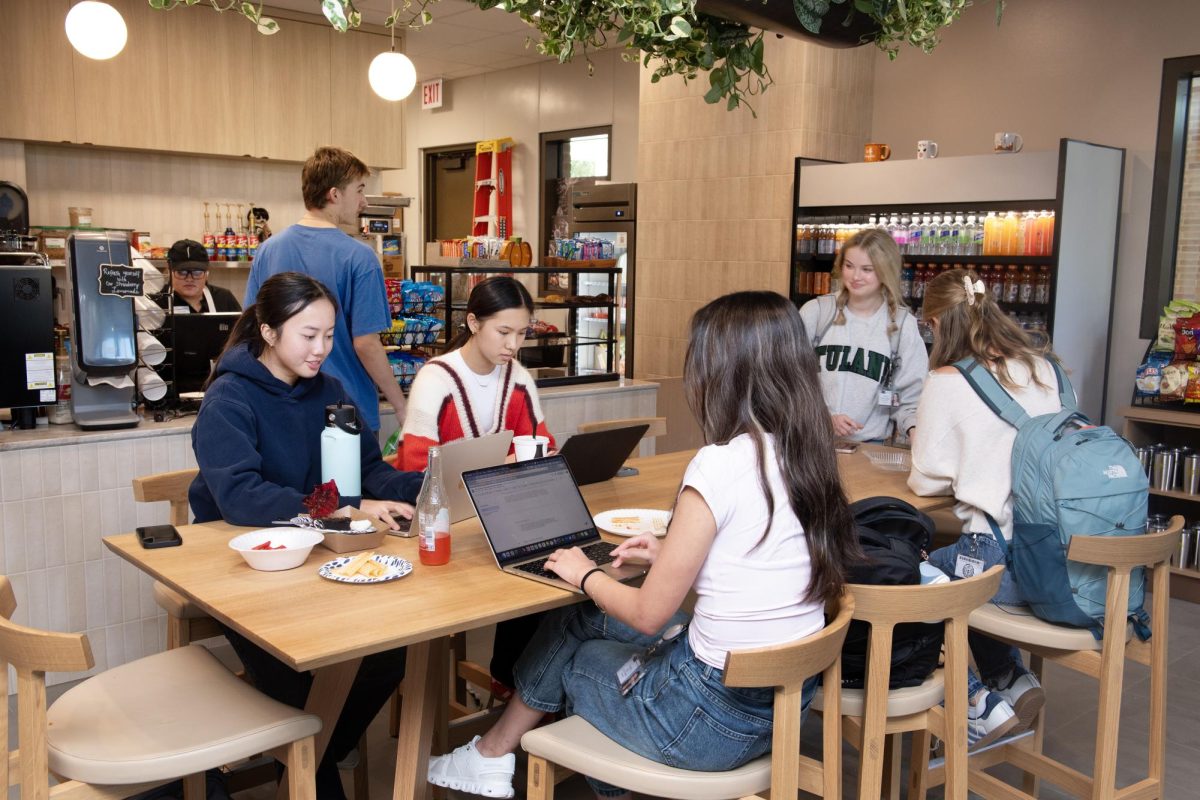Finding my voice through journalism
Students in G-period journalism examine spread designs.
August 18, 2021
My heart pounded in my chest. The buzzing in my ears almost drowned out the teacher’s voice, but I could still hear her words building towards the inevitable question: “Can someone come up with three pieces of evidence and analysis to back up this claim?”
No one said a word. I grabbed my pen and started pretending to write down ideas, avoiding eye contact at all costs.
I had done the required reading the night before. If I needed to answer the question by myself, I could definitely come up with something. But coming up with something on the spot in front of the whole class was a different story.
“Please don’t call on me,” I thought to myself.
The teacher turned to another student.
“What do you think?” she asked.
I let out a sigh of relief.
The student came up with two examples but was unable to think of a third. The teacher scanned the room, looking for someone to finish the answer.
I quickly reached for my water bottle, thinking that if the teacher saw me drinking, she’d pick someone else.
It worked. She glanced right past me. The boy sitting next to me was the next victim.
Sensing I had accidentally devised a brilliant plan, I began to utilize this deception repeatedly. I always prepared for class, studying the required material, making notes in the margins, highlighting the key terms and ideas. If I couldn’t avoid being called on, at least I would know the answer. Somehow, my water bottle technique, along with the pandemic-induced move to distance learning helped me avoid potential embarrassment through my entire freshman year and most of the following semester. However, a relatively straightforward assignment in my Journalism class upended my approach.
In order to write a story about students’ holiday gift wishes for The Falcon, I needed to interview an assortment of random Upper School students. My teacher made it seem so easy: just walk up to different kids you don’t know from every grade level and ask them what they want for Christmas. Yet the thought of approaching strangers didn’t seem so easy to me.
All my life I’ve tried to avoid having to interact with strangers or speak up in a group setting. Perhaps I am naturally shy or reserved, or maybe I’m a bit of an introvert. I could usually manage my discomfort by listening attentively, laughing along and making side comments when appropriate, and occasionally relying on a strategic swig of water. Now, as I faced my journalism assignment, I had no choice but to confront my fear directly: the success of my project depended entirely on my ability to walk up to a bunch of older kids and ask them questions.
I went home that afternoon pondering a way out of my predicament. Maybe I could just email random kids and solicit their responses? That could work. I could use social distancing to justify my choice. I could retreat to my comfort zone and continue to avoid my fears. I knew, however, that approach would limit my reporting. I would not be able to ask follow-up questions. I could not read body language or interpret vocal inflections that might reveal something more interesting. A good reporter looks for those things; an impersonal email masks them. Could I be an effective journalist if I continued to shy away from direct interactions with people I do not know? I knew how much I enjoyed journalism, and I wanted to do a good job, so I decided that I had no choice but to be social.
I feel much more comfortable doing things when I have a plan, so I decided to write a list of potential approaches and follow-up questions, making sure I would be able to gain as much information as possible in each interaction so that I wouldn’t have to speak to as many people.
That next morning, I walked nervously from the garage towards the school, telling myself I would wait until lunchtime to approach anyone. But when an older boy held the door open for me as I entered the building, we made eye contact. “Thank you,” I said reflexively. Then, before I realized what happened, I followed with, “Do you mind if I ask you a question really quickly for a project for the school magazine?” “Sure,” he said. “How can I help?”
Before I knew it, I was engaged in a fascinating discussion with a kid I’d never met before. He told me he was hoping to get an iPad for Christmas, and we got into an interesting debate about whether taking notes on an iPad or on paper is better. I walked away thinking about the next possibility to interview someone new. By acknowledging my discomfort, reminding myself how important this project was to me, setting up a plan, and pushing myself to be brave, I simultaneously overcame my fear of speaking up and ignited my passion for investigative journalism. And when I sit in history class now, I leave my water bottle in my backpack.













